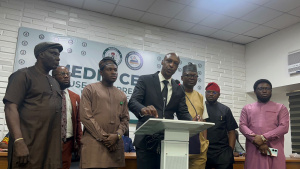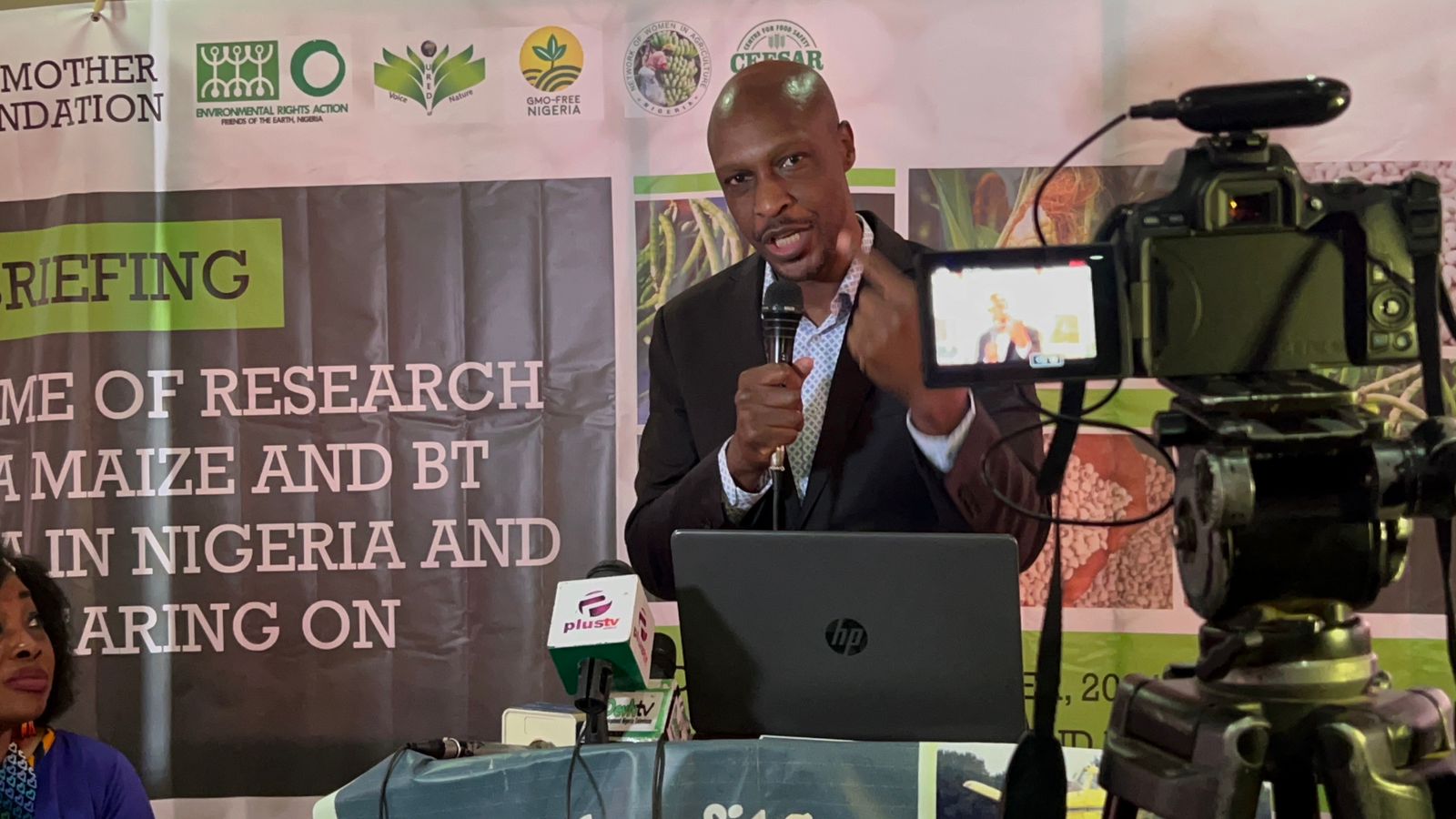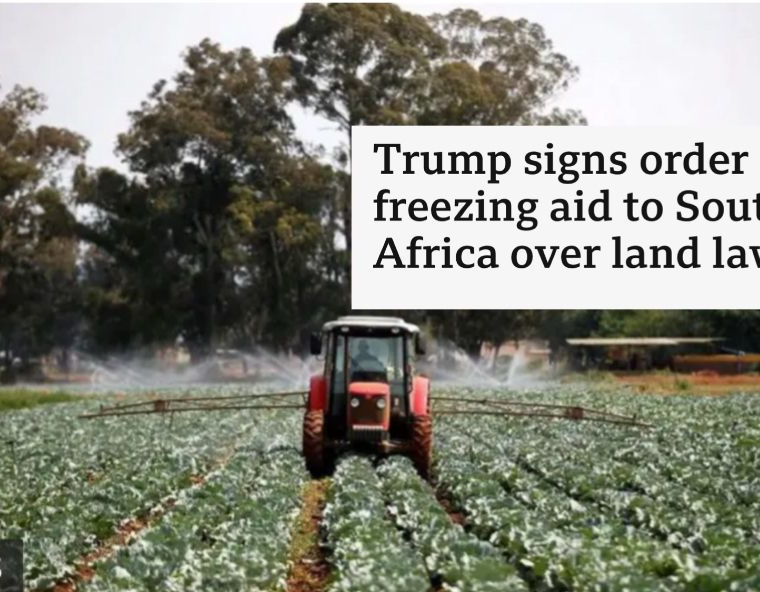 On the 17th of November, 2024, I was invited to Abuja, Nigeria, to attend the House of Representatives joint committee hearing on the impact of GMOs on human health and the environment. The hearing also had a second mandate of investigating the feasibility of the privatization and commercialization of government silos and agriculture value chain assets.
On the 17th of November, 2024, I was invited to Abuja, Nigeria, to attend the House of Representatives joint committee hearing on the impact of GMOs on human health and the environment. The hearing also had a second mandate of investigating the feasibility of the privatization and commercialization of government silos and agriculture value chain assets.
At the hearing, 97 non-governmental organizations and civil society organizations, including ZASM (Zimbabwe Anti-Sanctions Movement), were invited to contribute to the discussion on the impact of GMOs on the economy, human health, and the environment.
Among the members of these institutions were professors in genetics, gene editing, biochemistry, agriculture, agricultural economics, and other scientific disciplines, all advocating against GMOs.
The fact that the committee’s research question sought to examine the impact of GMOs on human health and the environment was very encouraging because it made the inquiry human-focused rather than being driven by corporate profit motives. From my understanding, this was the most prominent hearing to investigate the impact of GMOs on health and the environment by any parliament in Africa.
What made the hearing even more inspiring was the fact that the anti-GMO position was being bolstered by a group of highly qualified scientists and academics, dispelling the notion that those opposed to GMOs are pseudo-scientists or conspiracy theorists.
According to the high-powered CEFSAR delegation that invited me to the hearing, they had been inspired by my fight against GMOs and wanted me to provide the House of Representatives with insights into how GMOs had destroyed seeds and eroded small rural farmers’ ability to produce food in Southern Africa. More critically, they wanted to use this opportunity to unify the anti-GMO fight across the continent in a broader effort to purge Africa of what they see as economic, chemical, and biological warfare designed to reenslave the continent through food.
While I had much to share with the Nigerians, I learned a lot from interacting with their scientists. For example, it turns out that a GMO may have the dominant terminator gene, also known as GURT (Genetic Use Restriction Technology), to prevent a plant from reproducing. However, as explained by Professor Qrissterberg, the terminator gene can also exist as a recessive trait and in a few seasons, this recessive trait can become active, ultimately causing the crop to lose its ability to reproduce, leaving farmers in the same position of being unable to produce food without buying new GMO seeds.
He also explained how their research has demonstrated that GMO wheat has higher levels of starch, contributing to a rise in childhood diabetes and obesity. Another professor at the gathering presented research showing a significant increase in endometriosis among pigs that were fed GMOs. Considering that pig DNA is remarkably similar to human DNA, this could explain the increase in endometriosis among women in countries where GMOs are widely consumed.
Another revelation at the hearing was that Nigeria was retrospectively exploring whether to adopt GMOs, even though the government had already recently licensed Tela Maize, or MON 87460 GM maize. However, according to a geneticist, Professor Chris, who was rebutting the claim that Tela Maize was the first GMO crop licensed in Nigeria; GMO cassava, rice, wheat, cowpeas, and cotton had been secretly licensed and distributed to farmers in various provinces since 2017—without the public’s knowledge.
Professor Chris and another academic, whose name I didn’t catch, accused the National Biotechnology Development agency (NABDA) and the Ministry of Agriculture, of conspiring with foreign stakeholders to commercialize and cultivate GMOs in Nigeria. This conspiracy allegedly began between 2010 and 2015 when Akinwumi Adesina, a former director of the Bill & Melinda Gates Foundation’s AGRA (Alliance for Green Revolution Africa) became Minister of Agriculture in Nigeria and actively laid the bricks for the covert commercialization of GMO cassava, cow peas, rice, cotton and wheat in Nigeria, two years after he left that office.
Currently , Tela Maize and cotton are the only crops that have been publicly acknowledged as genetically modified, yet, four other crops have been genetically engineered and introduced to the Nigerian market unbeknown to the public since 2017.
More concerning is the fact that Tela Maize, or MON 87460, was recently rejected for approval by South Africa’s Supreme Court, after the African Centre for Biodiversity (ACB) successfully argued that not enough impact assessment studies had been conducted in South Africa to determine its safety. Nigerians are now questioning how this same GM maize was rubber-stamped for production in Nigeria without proper interrogation, consultation or due diligence.
During the hearing, an overwhelming number of the panel’s committee members, expressed clear and unequivocal opposition to GMOs. In contrast, a small group of about five or six government-aligned organizations, led by the National Biotechnology Development Agency (NABDA) headed then by Rose Gidado, who also heads another NGO called Open Forum on Agricultural Biotechnology (OFAB) that is funded by the Bill & Melinda Gates Foundation to promote GMOs in Africa, supported the use of GMOs.
The Minister of Agriculture appeared neutral in his speech, lamenting Nigeria’s projected population growth to 400 million by 2050 and stressing the need for scientific research to safely increase food production per hectare, without compromising health or the environment. Suspiciously, he used the example of how in the early 1990s, many Nigerians believed polio vaccines were a population reduction tool, yet those vaccinated are now adults who didn’t die from the vaccine. However, the question remains: what science backs this analogy, especially given that many studies link Nigerian polio vaccines to various injuries and fatalities over the years?
The pro-GMO lobby appeared on the back foot during this hearing. Rose Gidado, the leading pro-GMO activist, remained largely silent throughout the proceedings, possibly fearing a challenge from the well-prepared team of anti-GM professors and experts who seemed knowledgeable about the negative impact of GMOs.
In fact, the pro-GMO bloc seemed so unprepared to answer critical questions about the safety of GMOs that were posed by the panel that they were asked to submit their responses in writing [in the absence of rebuttals] for later review.
I recall an interesting incident that occurred when a man came to sit next to me during the hearing. As we began chatting, I realized we hadn’t introduced ourselves, so I introduced myself and I asked whether he was part of the pro-GMO or anti-GMO group. He admitted he was pro-GMO and surprisingly said he knew who I was and that I lived in South Africa. When I asked how he knew me, he vaguely responded, “Just know that I know you very well.” Later, he inadvertently revealed that he was the husband of one of the lead pro-GMO lobbyists sponsored by the Bill & Melinda Gates Foundation.
For a moment, this sent shivers down my spine, as I wondered whether he had deliberately come to sit beside me because of my activism. Nevertheless, I soon shook off my concerns and felt proud that my work had garnered recognition across the divide.
Critically, this chapter exposed a troubling revelation about Nigeria’s biotechnology space that is marred by blatant conflict of interest, in which regulators or ministers who are meant to advance Nigeria’s interests are often also part of the pro-GMO lobby. A clear example is Rose Gidado, the Assistant Director of NABDA’s Agricultural Biotechnology Department, is also the Nigerian Country Coordinator for the Gates-sponsored OFAB, which actively promotes GMOs in Africa.
This is a glaring conflict of interest, as her government position is meant to ensure food safety and efficacy, while her OFAB role solely seeks to advance the interests of foreign biotech companies. No wonder GMOs were introduced into Nigeria without much government or parliamentary oversight, particularly under the influence of Gates-affiliated organizations like AGRA (Alliance for a Green Revolution in Africa) during Adesina’s tenure as Minister of Agriculture.
Conversely, CEFSAR has been instrumental in lobbying members of the House and exposing how GMOs and agrochemicals pose a national security threat. Their efforts shed light on the silent crisis pushing Nigeria toward seed dependency, food insecurity, and environmental degradation, which was instrumental in getting the House of Representatives to constitute the hearing.
This hearing helped lawmakers understand the existential threat Nigeria and Africa face. If no action is taken, the infiltration of GMOs and chemicals will not only destroy Nigeria’s agricultural independence but also jeopardize Africa’s future as a whole.
After the hearing, lobbying intensified on both sides. I joined CEFSAR in knocking on lawmakers’ doors, sharing Zimbabwe’s experience of how rural farmers have lost their ability to produce food due to costly patented seeds, chemicals, and soil destruction. Many lawmakers admitted they were unaware of the depth of GMO infiltration in Nigeria’s food systems and the threats this posed.
This trip has strengthened my resolve to work with other civil society organisations to unite Africa in resisting food imperialism. We must restore our open-pollinated seed systems and invest in organic farming to reclaim our food sovereignty from Western biotech dependency.
Written by Rutendo Matinyarare Chairman of ZASM.





